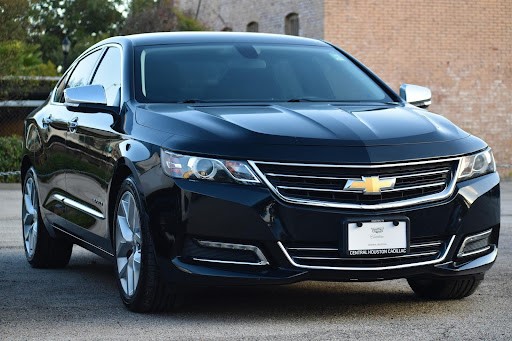 Extended car warranties are vehicle service contracts you purchase. It does not extend your car’s warranty but stipulates what parts of your vehicle they agree to cover for repair and where you can get those repairs. It can be considered an investment for peace of mind against financial risks. If you plan to buy one, it is natural you would want the best extended car warranty for your vehicle. It might be a good idea to look around and compare prices before finalizing your purchase.
Extended car warranties are vehicle service contracts you purchase. It does not extend your car’s warranty but stipulates what parts of your vehicle they agree to cover for repair and where you can get those repairs. It can be considered an investment for peace of mind against financial risks. If you plan to buy one, it is natural you would want the best extended car warranty for your vehicle. It might be a good idea to look around and compare prices before finalizing your purchase.
You never know when your car will break down. Whether it is from wear-and-tear or a problem caused by the manufacturer’s side, repairs will be costly. Extended warranties can serve as a buffer in case of such breakdowns. They are comforting to have, especially if you are planning a road trip for the long weekend. But are extended car warranties worth the money?
The simple answer is that it depends on who you are asking. In a sense, it is on a case-to-case basis.
New vs. Used Car
Newer car models are known for durability and reliability. However, car owners still want to protect their cars. If you are buying a brand-new vehicle, it isn’t much of an issue because the unit most likely has a manufacturer’s warranty. It might not be so if you are in the used-car market.
Some used cars do come with an extended warranty. If it has none, you might want to have it appraised to know if you need to get one. Since most used cars in the market already have lapsed manufacturer’s warranty, an extended warranty might be a worthy purchase.
But if you are buying a brand-new car, an extended car warranty might be a redundant purchase. You can take your time to consider if you need one. And if you do, check the fine print to ensure it is not just overlapping with your car’s warranty before buying one.
When Should I Get an Extended Car Warranty?
Since extended car warranties are additional expenses, and most people who buy them rarely get to enjoy their benefits, most would discourage you from getting one. Yet, it might be a good idea to get an extended warranty for your car in some cases.
Examples of such situations are:
- Your car’s warranty is about to end, and you want to continue having coverage, especially for bumper-to-bumper and powertrain warranties.
- You don’t have enough money saved for emergency repairs and part replacements.
- The used car you are buying is more than five years but has good mileage.
- Your secondhand car is way past its manufacturer’s warranty.
- You want some peace of mind in terms of protecting your car.
Extended car warranties are more similar to insurance policies. They are often called aftermarket warranties or used car warranties.
When Is Getting an Extended Car Warranty Not Worth It?
As long as it costs money, you’d want a return on your investment to make sure your purchase is worth it. In some scenarios, extended car warranties are unnecessary, unusable, or a redundant expense, such as in the following:
- If your brand-new or used car is still covered by its manufacturer’s warranty.
- You have enough funds for emergency repairs and part replacements.
- The car model you own is reliable and has very minimal issues, with proper maintenance.
- Your car is far along both in years and mileage.
- The extended warranty has affiliate auto repair shops inaccessible or inconvenient for you.
- Your extended warranty comes with a deductible per visit.
Sometimes, your extended car warranty coverage overlaps with the car’s manufacturer’s warranty. Also, they typically don’t cover everything, and the more extensive an extended warranty’s coverage, the higher its price.
Most extended warranties also have depreciation clauses. So if your car is vintage and has traveled longer than most cars, your extended warranty might cover only a portion of the repair.
Of course, if your car is so durable and reliable that it rarely breaks down, getting an extended car warranty that you will never use is just burning money.
Some Final Tips
When shopping for extended car warranties, remember that you don’t need to rush. If a dealer or third-party vendor is pushing an extended warranty too much, it is okay to get suspicious. Look around the market and compare prices and coverages before choosing the one that best fits your needs and budget. And do not forget to read the fine print because the devil is always in the details in small font.
Always do a background and reputation check on your provider, as well as their affiliate auto repair shops. Check how the extended warranty handles transactions for covered repairs. If you need to pay the bill, file a reimbursement check if a claim can be rejected after payment. Lastly, look at the exclusions and requirements of an extended car warranty. If a salesperson tells you it covers everything, they are lying.










